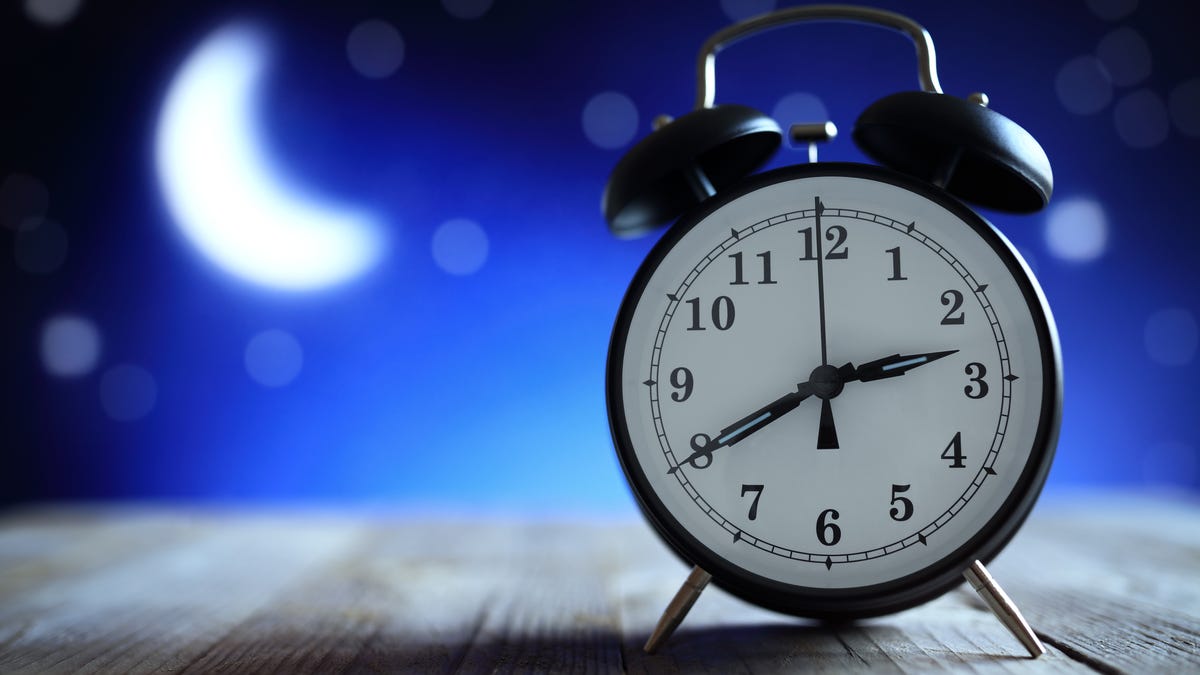 Why You Can Trust CNET
Why You Can Trust CNET Bad Night's Sleep? It May Be the Moon's Fault
Research shows that the lunar phases, particularly the full moon, can mess with our quality of sleep.

We all know the old legend of werewolves and how they transform from human to beast under the full moon's glow. Though that's nothing but an old myth, there is truth behind the moon's ability to turn your regular Joe Schmo into a different monster: a groggy, moody, sleep-deprived zombie.
Science says that some individuals see a decline in sleep quality during certain points of the lunar phases. A good night's sleep is important for your everyday functions, from your mood and knowledge retention to your immune system and heart health. By getting less than eight hours of sleep a night, you risk waking up on the wrong side of the bed as a dazed, slow-to-react and grumpy version of yourself.
Below, learn more about the lunar phases' effects on sleep and how to prevent poor rest during the full moon. For more tips on how to sleep better, here are the 7 best natural sleep aids, and here's how to fall asleep in 10 minutes or less.
How the moon phases affect sleep
What may seem far-fetched to some is backed by scientific evidence, as several studies have been conducted with the results pointing to the impact of the moon's cycles on sleep quality.
In one prominent study, researchers looked at the sleep patterns of three rural Argentinian communities during a full moon. They compared their patterns to 464 American college students in a city setting.
They found that regardless of geographical position and levels of light pollution, people took longer to fall asleep and slept for a shorter amount of time in the week leading up to a full moon. This suggests that there could be multiple ways the moon influences sleep patterns.
In an analysis of a separate sleep study, researchers noted similar results suggesting that sleep quality and latency were compromised by the lunar cycles.
- It took five minutes longer for people to fall asleep.
- People slept an average of 20 minutes less than usual.
- People had a 30% decrease in deep sleep.
- People reported a decline in sleep quality.
Why do the moon phases, particularly the full moon, mess with our sleep? Experts have their theories.
Light
Light plays an important role in regulating our sleep/wake cycle, and our bodies are ultra-sensitive to it. As a result, the shine of a full moon can throw off your circadian rhythm, the system in our body that controls the sleep/wake cycle. That said, the moon is only 7% as luminous as the sun, so it's only a part of the story.
Block the moon's light from shining into your bedroom with blackout curtains or a sleep mask.
Electromagnetism
Another theory on why the moon affects sleep has to do with Earth's electromagnetism. Without getting too technical here, our planet has an electromagnetic field with a tail called a magnetotail. As the moon orbits the Earth, it passes through the magnetotail during the full moon phase and becomes negatively charged.
This negative charge affects the planet's electromagnetic field, and studies show that at a low level, humans can be influenced by magnetic fields.
Gravity
The moon's gravitational pull influences our ocean's tides, and since the human body is made of more than 50% water, some theorize that lunar gravity can affect sleep. However, experts argue that the moon's gravitational pull on humans measures smaller than 1 millionth the size of an atom. As such, lunar gravity likely doesn't significantly impact your quality of sleep.
How to sleep better during the full moon
- Use blackout curtains to block the moon's illumination from shining through your room at night, along with other ambient light that may be disrupting your sleep. Sleep masks are also an effective and cheap way to block light from messing with your sleep.
- Avoid blue light before bed to help regulate your circadian rhythm.Blue light from electronic devices like our phones and laptops emits a blue light that can disrupt our body's melatonin production. This hormone plays a role in promoting sleepiness and disrupts sleep quality.
- Try to maintain a regular bedtime routine. Since the lunar cycles can reduce our sleep quality, it's important to practice good sleep hygiene to keep our sleep/wake cycle on track. Going to bed around the same time each night trains your body to naturally start winding down near bedtime.
- Make your environment comfortable for sleep with an accommodating mattress that suits your sleeper and body type. You should also keep your room at a cooler temperature optimal for sleep.
- Don't drink coffee too late in the day. Alone, the lunar cycles are enough to make it more difficult for you to fall asleep. By adding caffeine to the mix, you have a recipe for poor sleep latency (the amount of time it takes to fall asleep). A good rule of thumb is to stop drinking caffeine eight hours before bed.

